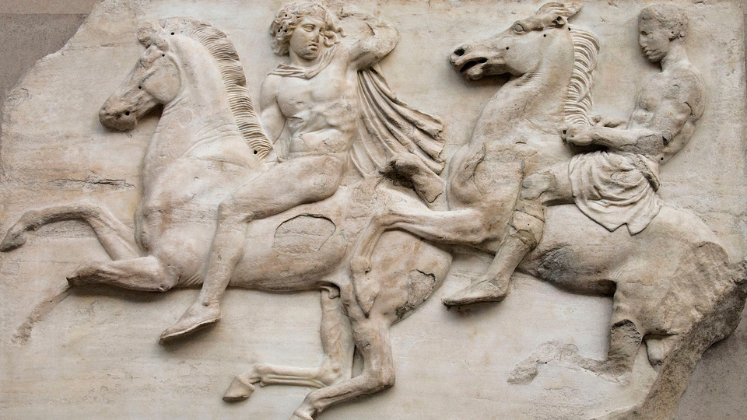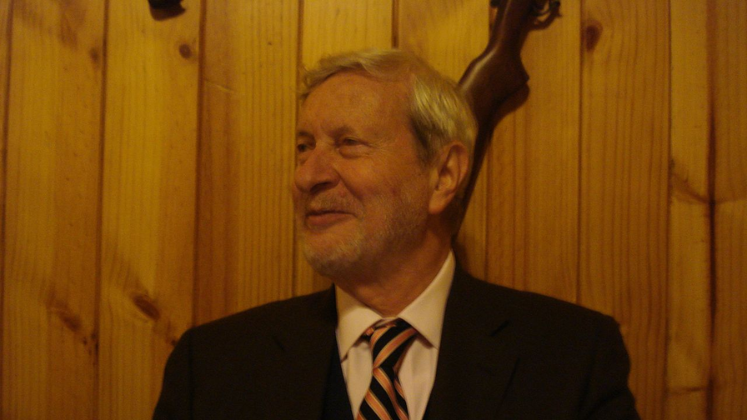Pressure has been mounting on the British Museum and similar institutions to return artefacts considered stolen or otherwise dishonestly procured. The Elgin or Parthenon Marbles remain one of the Museum’s most popular attractions. Efstathios Kessareas explains the debates within Greece over who has a right to negotiate their return: the Greek authorities, the Orthodox Christian majority, or the Ethnic Hellenes who follow ancient Greek polytheism?

The heated debate about the Parthenon Sculptures, also known as the Elgin Marbles, that have been on display in the British Museum since their removal from the Acropolis of Athens in the beginning of the 19th century, has been recently reignited as a result of two facts. First, the discussions between the Greek Prime Minister, Kyriakos Mitsotakis and the chair of the Museum, George Osborne, aimed at investigating the possibility of a future cultural partnership agreement. And second, the recent scandal over the thefts at the British Museum has weakened its public image as a guardian of cultural artefacts, giving to the Greek side the opportunity to renew its calls for the return of the Marbles. The legal, cultural, and moral arguments of both stakeholders are already well known and do not need be repeated here. However, less is known about the stance on this longstanding dispute of the followers of the ancient Greek religion, the so-called “Ethnic Hellenes”.
The Supreme Council of Ethnic Hellenes (YSEE) is the most well-known Greek Neopagan organisation that aims to revive the Hellenic religion in today’s Greece, an overwhelmingly Orthodox Christian-majority country. YSEE was founded in the mid 1990s by groups and individuals, who define themselves as legitimate descendants of the ancient Greeks and share a common sense of duty to restore and promote all aspects of Hellenic tradition, first and foremost its polytheistic religion. This is because they perceive the latter as the womb of the glorious ancient Greek civilisation that can also today provide the key solution to the various crises humanity faces. Their basic argument is that the Hellenic religion and worldview cultivates an orientation to life (e.g. humanism, democracy, nature worship, tolerance) that stands in stark contrast to the individualistic, technocratic, and authoritarian forms of life today, which are believed to be the product of monotheistic religions, and especially of what they pejoratively call “Judeo-Christianity”.
These Greek Neopagans emphatically support the return of the Parthenon Sculptures to Greece, as one might expect. However, a closer look reveals that due to their religious convictions and aims they criticise not only the British but also the Greek authorities. More specifically, they categorically oppose the return of the Marbles through a loan agreement with the argument that such an agreement will legitimise the “British plunder and abduction”, as they call it. For them, the “legal owner” of the Sculptures is neither the foreign British Museum nor the Greek authorities, on the grounds that they are both driven by the same sacrilegious logic, one that sees the Sculptures as commodities that bring profit or, at best, as cultural artefacts which are dispossessed from their original religious function and meaning.
For the “Ethnic Hellenes”, the real owners of the ancient sculptures are the Gods to whom they are originally dedicated. Thus, the Parthenon Marbles belong to the goddess Athena, patron and protectress of the city of Athens, as they argue in their official letter addressed to the previous director of the British Museum, Hartwig Fischer. They highlight that all cultural artefacts belong to the ethnic traditions and places which have created them: “people belong to the place, and not vice versa”.
To strengthen their argument, they also invoke the Article 11 of the UN Declaration on the Rights of Indigenous Peoples, which highlights the right of indigenous peoples not only to preserve but also to revitalise their traditions, customs, and cultural products. It is clear that for the Greek polytheists the connection between the ethnos (for them, the word means ethos, namely the way of thinking and living of a collectivity), place, culture, and religion is inextricable and sacred. Therefore, the removal of a sculpture from its original place and function is not considered a mere illegal (in the modern sense) action, but a deep sacrilege against the Gods and the people who believe in them.
On a more theoretical note, this kind of thinking is characterised by holism and organicism, for it places emphasis on organic unity and wholeness. From this standpoint, the sculptures are not just marbles, dead pieces of broken items or cultural artefacts to be displayed on the “sterile” environment of a Museum (sterile in the sense that religious feelings and practices are regarded as inappropriate for such a cultural place, and if expressed are stigmatised as idolatry), but representations of living Gods, symbols of real forces that follow the laws of a living nature. Therefore, it is argued that an attitude of respect and worship is most appropriate as opposed to the barbaric action of their brutal removal from the temples and their cold exposition as objects that bring money.
Another issue that needs to be pointed out is that the Parthenon Marbles dispute offers to the “Ethnic Hellenes” an ideal opportunity to make their views publicly known, since it is a highly contested issue that attracts international attention. They take this opportunity to present themselves once more as the official voice of the ethnic religious community in Greece, who have a direct interest on this issue, as well as to criticise the Greek authorities for serving the interests of the powerful Orthodox Church instead of working towards what they call “re-Hellenization” of Greek society, namely the restoration of the Hellenic way of life.





